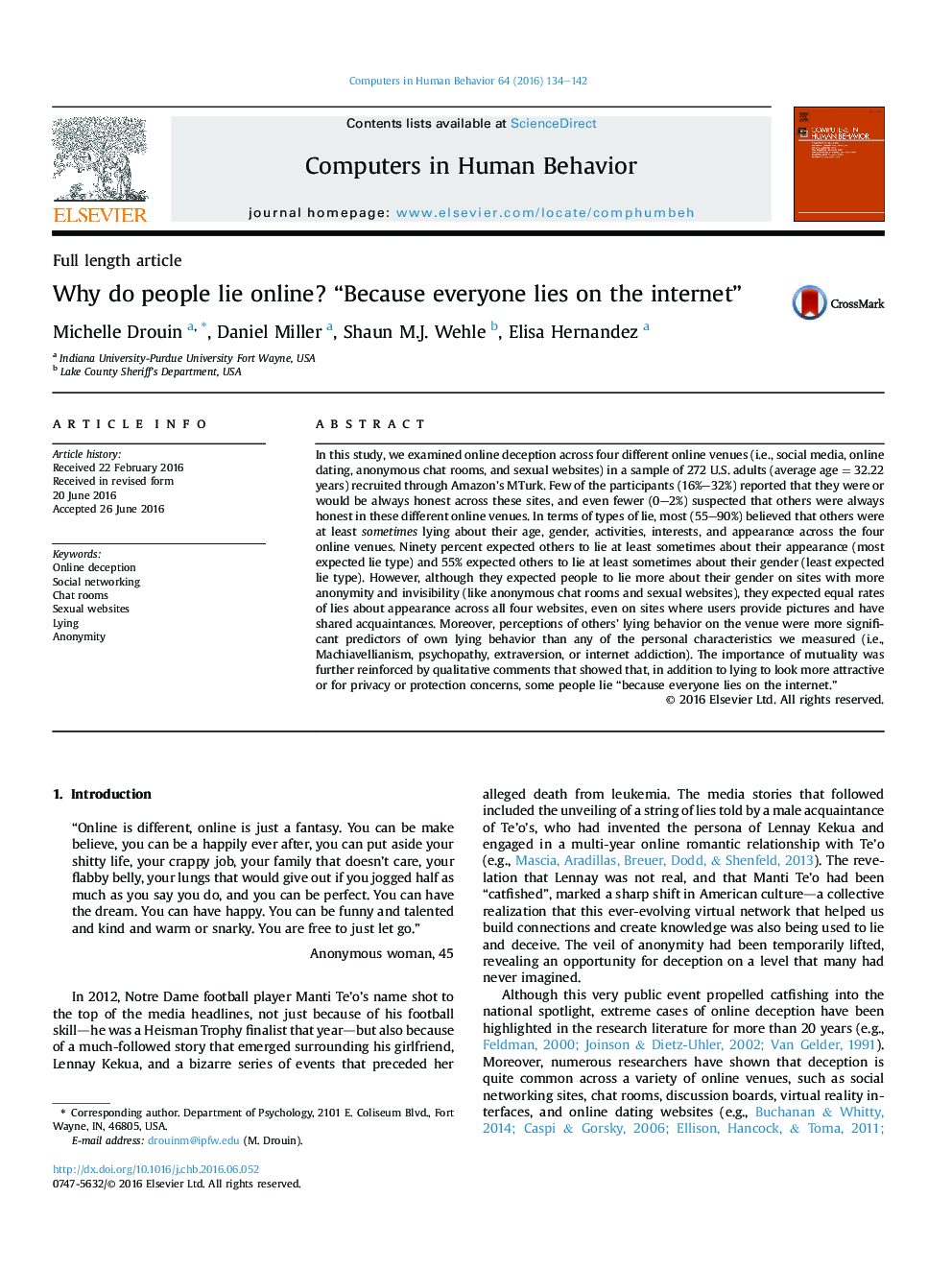| Article ID | Journal | Published Year | Pages | File Type |
|---|---|---|---|---|
| 6836430 | Computers in Human Behavior | 2016 | 9 Pages |
Abstract
In this study, we examined online deception across four different online venues (i.e., social media, online dating, anonymous chat rooms, and sexual websites) in a sample of 272 U.S. adults (average age = 32.22 years) recruited through Amazon's MTurk. Few of the participants (16%-32%) reported that they were or would be always honest across these sites, and even fewer (0-2%) suspected that others were always honest in these different online venues. In terms of types of lie, most (55-90%) believed that others were at least sometimes lying about their age, gender, activities, interests, and appearance across the four online venues. Ninety percent expected others to lie at least sometimes about their appearance (most expected lie type) and 55% expected others to lie at least sometimes about their gender (least expected lie type). However, although they expected people to lie more about their gender on sites with more anonymity and invisibility (like anonymous chat rooms and sexual websites), they expected equal rates of lies about appearance across all four websites, even on sites where users provide pictures and have shared acquaintances. Moreover, perceptions of others' lying behavior on the venue were more significant predictors of own lying behavior than any of the personal characteristics we measured (i.e., Machiavellianism, psychopathy, extraversion, or internet addiction). The importance of mutuality was further reinforced by qualitative comments that showed that, in addition to lying to look more attractive or for privacy or protection concerns, some people lie “because everyone lies on the internet.”
Related Topics
Physical Sciences and Engineering
Computer Science
Computer Science Applications
Authors
Michelle Drouin, Daniel Miller, Shaun M.J. Wehle, Elisa Hernandez,
